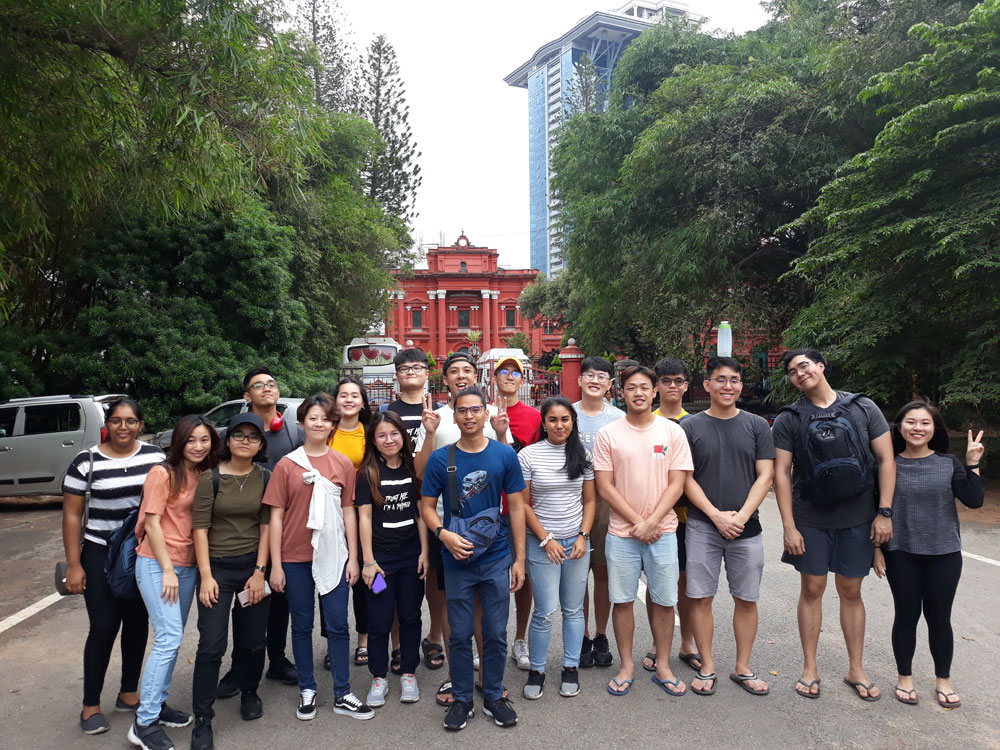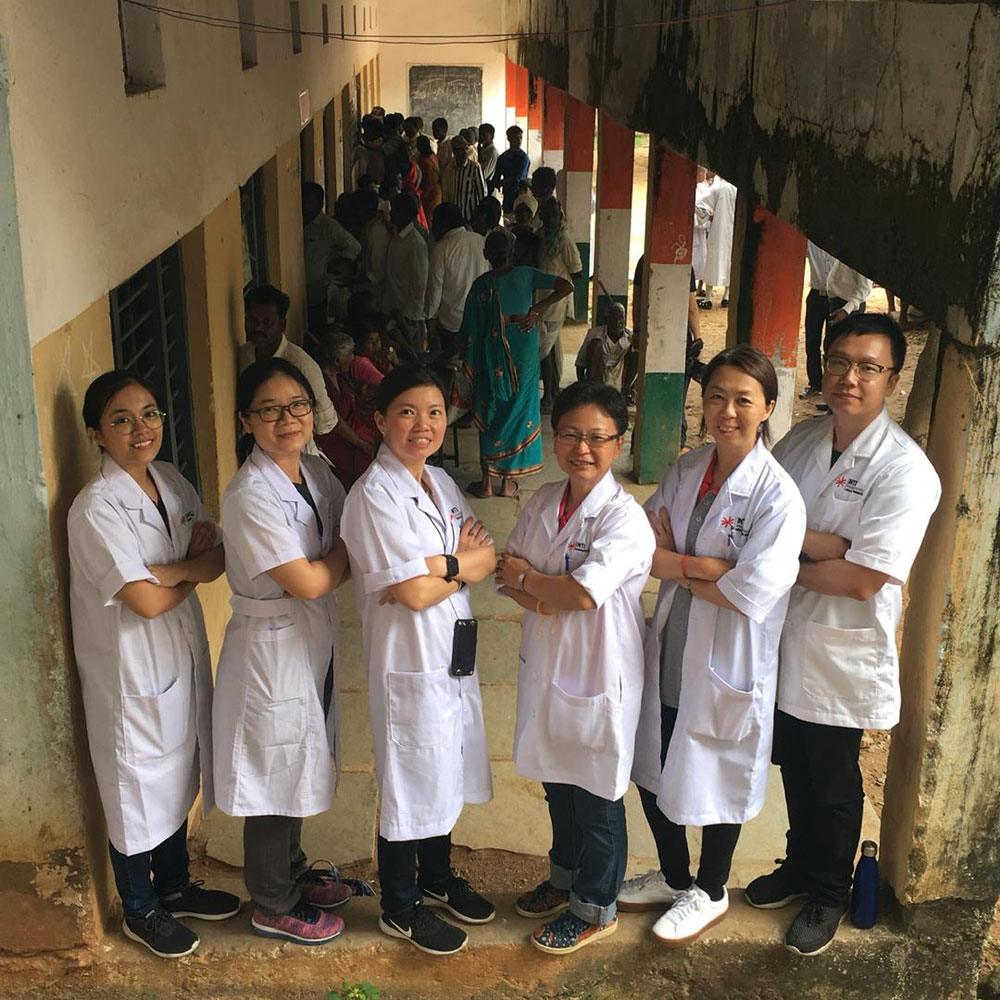Two groups of students and academicians from INTI’s Faculty of Health and Life Sciences, comprising of Physiotherapy, Biotechnology and Traditional Chinese Medicine (TCM) recently made a trip to India to contribute their support and services to underprivileged members of the community, and to gain international, hands on learning experiences.

18 Biotechnology and Physiotherapy students were accompanied by their lecturer to visit Bangalore, where the students attended an early intervention programme for the disabled and a workshop on rehabilitation for patients with spinal cord injuries by the Association of the Physically Disabled. They also met with local physiotherapy patients and gained insights on how they are benefitting from these programmes.
The students then travelled to Chennai, where they learned about the current practices in their respective fields at SRIHER (Sri Ramachandra Institute of Higher Education and Research). They also took the opportunity to experience the sights and sounds of both cities.
Four TCM physicians and two TCM alumni from INTI on the other hand were part of a team of 18 TCM physicians from Malaysia and Singapore to provide free TCM treatments to the community in the Shadnagar Region, Telangana. The trip was organised by the Fo Guang Shan Cultural and Education Centre, New Delhi, and a total of 8,300 patients were treated over a period of 7 days.

Dr Joseph Lee, Vice Chancellor of INTI International University explains, “We currently live in an era where digitalisation and automation is becoming the norm, but it is still important to hone soft skills and a sense of service, as these are what makes us human.
“I am proud of the faculty, students and alumni of the Faculty of Health and Life Sciences as they embraced the challenge of learning in an unfamiliar environment, while also contributing to communities that are in need of assistance.
“Serving communities in need is part of the holistic education we emphasise at INTI and as we look forward to a digitally enabled future, these humanistic qualities and how we leverage them will define our future success,” Lee concludes.